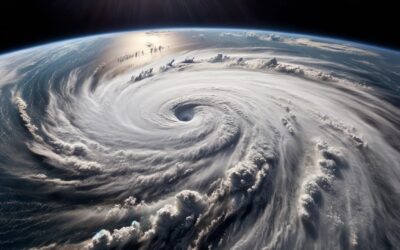The Trembling Earth: When Stability Turns to Chaos
The ground beneath our feet feels solid, dependable. But sometimes, in a matter of seconds, that illusion of stability shatters. The earth cracks, jolts, and rolls in a terrifying display of raw power – an earthquake. These geological events remind us how fragile our world is, and how the forces of nature can reshape it in an instant.
How Do Earthquakes Happen?
Our planet is like a giant jigsaw puzzle, with immense pieces called tectonic plates constantly shifting and grinding against each other. Stress builds up along these boundaries until, like a rubber band snapping, the rock breaks, sending shockwaves rippling through the Earth’s crust. These shockwaves are what we feel as an earthquake.
Unleashing Destruction
The severity of an earthquake depends on factors like its magnitude, depth, and proximity to populated areas. An earthquake’s destructive power can unleash a terrifying chain of events:
- Ground Shaking: Buildings are ripped apart, bridges crumble, and infrastructure fails as the ground violently shakes.
- Landslides: Earthquakes can destabilize hillsides, triggering devastating avalanches of rock and earth.
- Tsunamis: Massive underwater earthquakes can displace huge volumes of water, generating tsunamis that ravage coastlines miles away.
Real-Life Impacts
Earthquakes strike without warning, leaving a trail of human suffering. Families are displaced, communities are destroyed, and economies can spiral downwards. The earthquake in Haiti in 2010 is a stark reminder of the vulnerability faced by millions worldwide living in earthquake-prone zones.
Preparation is Key
We can’t stop earthquakes, but we can mitigate their dangers through understanding, preparedness, and engineering:
- Knowledge: Know your area’s seismic risk. Understanding the threat puts you in control of your safety.
- Planning: Have an emergency plan for your family. Discuss a meeting point, and stock supplies like food, water, and first aid kits.
- Building Design: Constructing earthquake-resistant buildings is vital for saving lives in high-risk regions.
Taking Action: Be Informed, Be Prepared
Learning about the science of earthquakes and their consequences is your first step in protecting yourself and your loved ones. Seek reliable information from sources like your local emergency management agency or geological surveys. Take proactive measures to protect yourself from the risks – it could make the difference when the ground starts to shake.
It’s time to take ownership of our preparedness. Let’s build a more resilient world together, starting with ourselves.
Why Should You Care?
- Personal Safety: Earthquakes pose a direct threat to anyone living in earthquake-prone areas. Understanding how they happen and how to prepare keeps you, your family, and your community safer.
- Global Awareness: Earthquakes impact millions of people worldwide. Learning about earthquake science and preparedness fosters empathy and encourages solutions to mitigate their devastating effects.
- Appreciation of Nature: Earthquakes showcase the immense power of nature and highlight our planet’s dynamic processes. Recognizing their power promotes responsibility and respect for the Earth.
Key Takeaways
- Earthquakes are the result of shifting tectonic plates and the release of built-up stress in the Earth’s crust.
- An earthquake’s impact depends on factors like magnitude, proximity to populated areas, and underlying geology.
- Earthquakes can trigger secondary hazards like landslides and tsunamis.
- Preparation is key – knowing your risk, having a plan, and investing in earthquake-resistant infrastructure saves lives.
Keywords
- Earthquake: A sudden seismic event caused by shifting tectonic plates, resulting in ground shaking and the release of energy.
- Tectonic plates: Massive pieces of the Earth’s crust that constantly move and interact.
- Seismic: Of or relating to earthquakes or earth vibrations.
- Magnitude: A measure of the amount of energy released by an earthquake, usually on the Richter scale.
- Epicenter: The point on the Earth’s surface directly above the focus (origin point) of an earthquake.
- Aftershocks: Smaller earthquakes that follow a larger earthquake in the same area, resulting from the release of residual stress.
- Landslide: The downslope movement of rock and earth triggered by ground shaking, heavy rainfall, or other factors.
- Tsunami: A series of powerful ocean waves generated by underwater earthquakes or volcanic eruptions.
- Hazard: A potential source of danger or harm, e.g., earthquake ground shaking is a hazard for buildings.
- Mitigation: Actions taken to reduce the severity or impact of a hazard, such as earthquake-resistant construction.
Frequently Asked Questions
- Can we predict earthquakes? Currently, earthquakes can’t be reliably predicted. Scientists monitor signs but can’t pinpoint the exact time or location.
- What to do during an earthquake? Prioritize safety: “Drop, Cover, and Hold On” – get under sturdy furniture, protect your head, and hold until the shaking stops.
- How long do earthquakes last? Shaking can last from seconds to a minute or more. Larger earthquakes often have longer durations.
Myth Buster
- Myth: Only certain areas get earthquakes.
- Reality: Earthquakes can occur anywhere, though some regions are much more prone due to active tectonic boundaries.
Let’s Talk!
- Have you ever experienced an earthquake? If so, share your story.
- What measures do you take to prepare for a potential earthquake?
- Do you think enough is being done globally to invest in earthquake mitigation?
Don’t hesitate to share your thoughts, knowledge, and concerns in the comments!












0 Comments